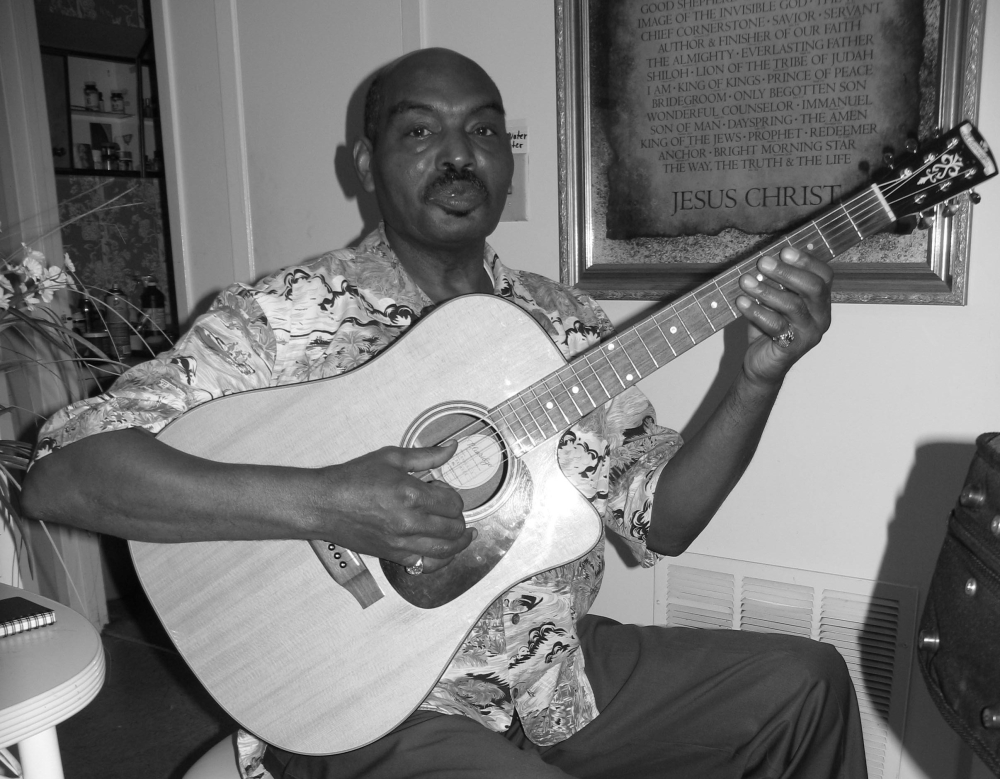The following story was originally published on the Library of Congress website as part of the 2011 Homegrown Concert Series. Words and images by Mary Margaret White.
Introduction
While the blues is very likely native to the Mississippi Delta, early performers from the area were influenced by multiple musical traditions from outside the region. The music of Ben Payton and the Thundering Harps likewise draws from both pre-WWII Delta blues traditions as well as country blues, folk and gospel styles from across the South. The group’s musical breadth largely reflects Payton’s own musical curiosity and the diversity of his musical experiences.
Early Life
Ben Wiley Payton was born on January 5, 1948 to Philip and Mary Virginia Payton in Coila (pronounced co-why-la), Mississippi, a small community in the hill country of Carroll County, just east of the Mississippi Delta. The middle of five children, Payton worked in cotton fields when he was not in school. His father was a gravel truck driver and was killed in a truck explosion in 1954, just before Payton’s 6th birthday. Following his father’s death, the family settled in the Delta town of Itta Bena, where his mother worked as a cook in both local restaurants and private homes.
Payton’s early musical influences include his pianist grandmother, Mabel Johnson, and his uncle Wiley, who played guitar and sang in gospel quartets. Payton’s mother and father also played guitar casually at family gatherings, and he credits the narrative style of his performance style to his mother’s storytelling skills. “My mother, she was a great storyteller,” says Payton. “She could tell a story, I mean have you scared to go to bed…And I guess that is in my music now. Even with lyrics, if I run into an old song and the lyrics aren’t saying too much, I have to doctor them for it to fit me, so that I can express it to the audience. To make it tell a story, because that is just in me, the storytelling part. That is just in me.”
Payton was given a toy guitar as a young boy living in the Delta, but it was not until his family moved to Chicago in April 1964 that he became immersed in music. At 17 he began working as a bassist and backup vocalist in a soul band, which practiced on the porches of their homes in the south side of Chicago, in the neighborhood of 45th and Michigan. After the band was fired from a gig, Payton committed himself to learning to play guitar in a skillful manner. He began taking private guitar lessons with retired DuSable High School music instructor John House, and later continued to school himself through instructional books and practice.
Influences
Payton was in a variety bands throughout the late ‘60s and early ‘70s, playing contemporary soul music in small clubs and at private parties. He worked regularly with groups including Bobby Rush and Joe Evans and the Supersonics, and as a member of house bands backed many prominent artists at clubs including Peyton Place. During this time Payton began to seriously study sounds and chords, and ultimately found his musical direction during a seven-month long stay in Tangier, Morocco in 1970, where he performed in a review featuring famed jazz pianist Randy Weston. “We would go to the medina [old city center], and they had the little groups there, and that is what drove me to the acoustic sound,” says Payton. “Because they didn’t have any electric instruments, they had the little finger drums, violinists, a lute player and sometimes a flute, but the sound was so natural and so sweet and so big… So I began to listen to that and I studied that everyday. That is where you’d find me at, up in the medina listening to them. And so when I came back here, then I had a concept of what I wanted to do.”
Payton recalls that when he returned to the Chicago deejays were taking over he club scene, but he nevertheless found work playing with groups including the Wolf Gang, the late Howlin’ Wolf’s backing band, replacing an ill Hubert Sumlin. In 1977 Payton became interested in acoustic blues music after hearing Robert Johnson recordings for the first time. Around this time he married and started a family, and although he stopped performing in clubs he continued to play guitar and sing at home and in church. Through listening to public radio programs Payton explored various musical genres, including blues, and continued to study the sounds and styles he had been exposed to in Morocco.
Return to Mississippi
In 2002 Payton returned to music and his home state of Mississippi. Over the past decade, Payton has developed a distinctive guitar style that nods to pre-War War II blues style while displaying an innovative and artistic technique all his own. His 2006 debut album, “Diggin’ Up Old Country Blues,” exhibits his varied musical interests. Payton is currently working on a new CD that will focus more specifically on his distinctive style of interpreting traditional acoustic blues.
“At this time I’m trying to go directly into an artistical playing of music,” says Payton. “It is to show forth the artisticness of playing the old blues. In fact that’s what I am trying to do with the old blues; to bring them up in another light. Not destroy anything about them, but to show that they can be played in the mind just the way you would play a symphony, you see. Because they are blues they don’t have to be just juke joint music; they can be done creatively, because that was the first kind of design.”

